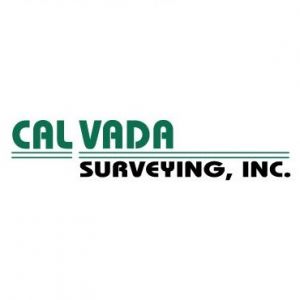Know Your Land with Boundary SurveysPosted by Calvada on November 5th, 2014 A boundary survey is an important land surveying procedure that should be performed by a professional land surveyor to establish the corners of a particular parcel of land. Boundary survey involves many different processes and stages and since the main objective of the survey is to determine the location of ownership lines, its initial phase must include a land records research. The land records research must be conducted at local, county, and state levels, surveying agencies and offices involved and locating deeds, maps, plans, wills, and all other important documents that will help define the location as well as the rights associated with the land parcel. A chain of title is created by tracing the parcel deeds back in time, allowing a better understanding of the original description of the parcel. Additionally, this research helps determine the junior-senior rights that are associated with the adjoining parcels. After the research is complete, a definite picture of what the land parcel should look like can be constructed according to all the descriptions and information contained in the researched documents. This is officially referred to as the "record boundaries." The next phase of a boundary survey involves a field reconnaissance, done to uncover boundary evidences such as walls, fences, iron pipes, rods, monuments, and other such types of boundary evidences. Field reconnaissance involves a physical investigation of the land, thus requiring a keen awareness of the types of evidences being searched, the land's local history and use patterns. It is conducted in light of the completed record boundaries and will not be concluded until the corner is found. A field survey is conducted to locate evidences uncovered during reconnaissance. This may involve different methods and instrumentation, including total station traverses where in a network of sight lines is strategically positioned throughout the parcel, along with GPS or global positioning surveys and other methods for taking survey field measurements. A preliminary plan of the survey is drafted, after which the relationships of the discovered physical evidences and the pre-determined record boundaries will be analyzed based on the deeds, boundary retracement principles, and the evidences. A professional surveyor will then make determinations in terms of the reliability of the existing corners and the replacement of missing corners. Boundary surveys are more than just a collection of accurate land measurements. They are a product of a thorough retracing of deeds and titles and an analysis of physical evidences of boundaries according to established legal principles, state board requirements, and local care standards. Go online and find a professional surveying firm for all your surveying needs. About the Author: Armando Dupont, a professional land surveyor started his career in surveying in 1977 and has extensive experience in managing personnel and projects. His experience includes: topographic mapping, boundary surveys and analysis, construction and control surveying, preparation of tract and parcel maps, earth work calculation and quantities, targeting and control for photogrammetric, and land title surveys in accordance with the American Land Title Association and the American Congress on Surveying and Mapping. Mr. DuPont founded Calvada Surveying, Inc. in 1989 and is a licensed Professional Land Surveyor in the State of California. Like it? Share it!More by this author |


